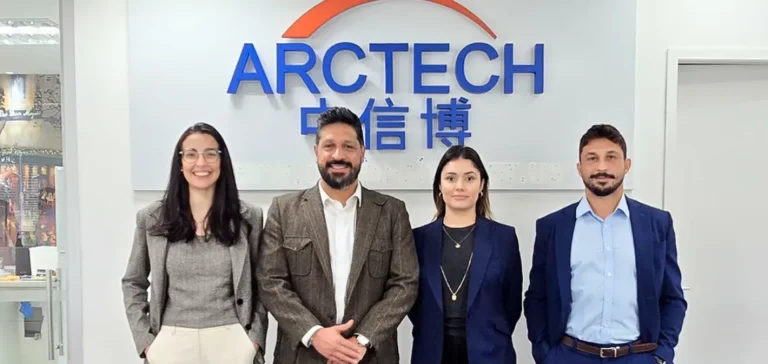Arctech, a global provider of solutions for solar trackers and smart structures, has announced the official approval of its Brazilian subsidiary under the FINAME programme. Managed by the National Bank for Economic and Social Development (Banco Nacional de Desenvolvimento Econômico e Social – BNDES), this programme grants local companies access to credit for equipment manufactured in Brazil.
A financial lever for solar development in Brazil
The FINAME certification allows Arctech to include its 1P solar trackers in the list of equipment eligible for local financing under competitive conditions. This development is intended to support the growth of the national solar sector and reinforce the supply of the regional value chain. Thanks to advanced control and backtracking algorithms, the 1P trackers can be deployed on complex terrain and adapted to the specific requirements of projects.
Strengthening Arctech’s presence in the Latin American market
Arctech’s strategy relies on developing a local industrial offer to maximise technical and economic optimisation of solar projects. The FINAME certification is seen as an essential component for developers’ access to competitive financing in Brazil, Mexico, Chile, Argentina, Peru, and Central America. The company states that this status strengthens its attractiveness to investors while facilitating the implementation of new projects.
Local industrialisation and regional expansion
Alejandro Silva Zamora, Director LATAM South & Brazil, stated that obtaining FINAME certification represents “a major step for Arctech’s expansion strategy in Brazil and Latin America, recognising its local industrial commitment.” He highlighted that this scheme facilitates the integration of the regional supply chain and the ability to meet customers’ requirements for performance and reliability.
The company reports having delivered over 60 GW of smart solar solutions across 40 countries, including trackers, structures, and building-integrated photovoltaic (BIPV) systems. In Latin America, more than sixty employees contribute to Arctech’s regional activities, supporting renewable energy projects with solutions adapted to the local market.
The FINAME certification highlights the importance of industrial localisation for access to the Brazilian market and addresses the aim of financial institutions to support suppliers investing in local production. Emphasis on cost optimisation, technological adaptability, and development of a skilled workforce is shaping the evolution of the solar sector in this growing market.






















